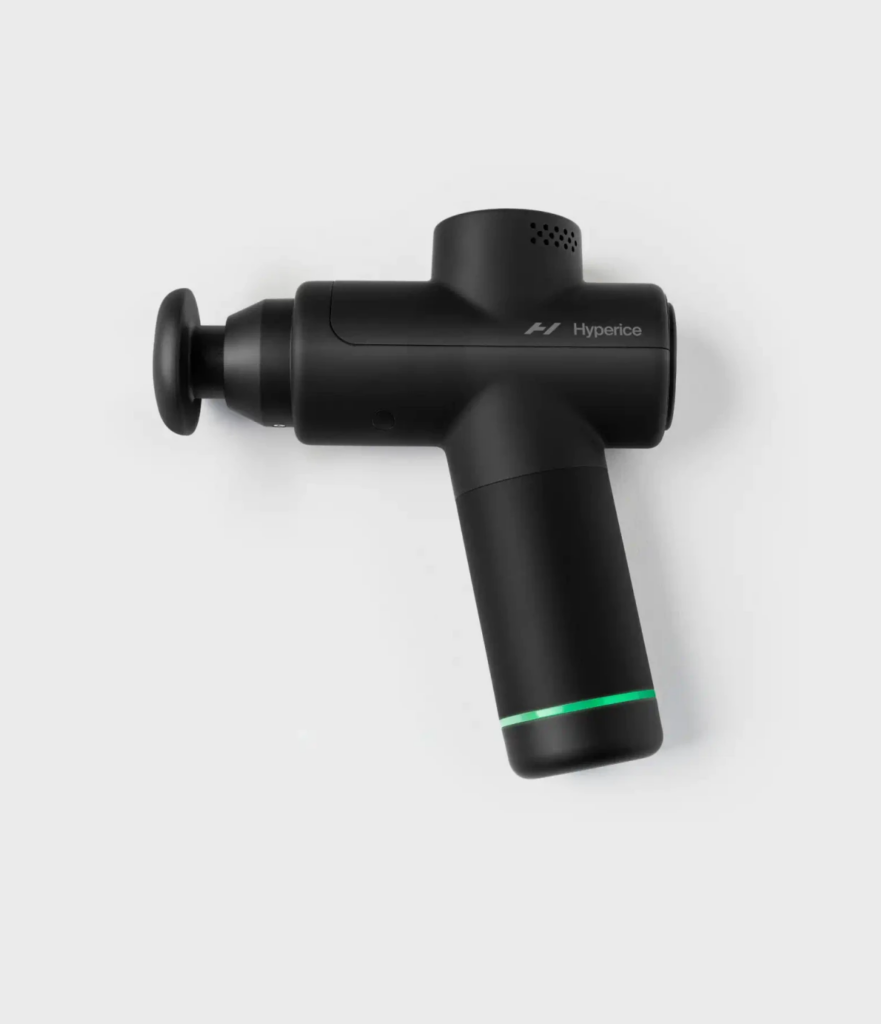Spring brings a wave of wellness innovations, from the unveiling of London residencies to face-focused fitness classes, pioneering healthcare platforms, and the latest spa openings. If you’re venturing over to Hackney, a must-visit fitness studio awaits you. Meanwhile, for those seeking a new lunchtime haunt, we have a gem to add to your list in the heart of Picadilly. Dive into what’s hot and happening in the wellness world this April!

The Sleep-Inducing Sessions
Most workout classes are designed to elevate our heart rates, sculpt our bodies, or enhance flexibility, but Hotpod Yoga offers a refreshing departure. Enter Sleep Sessions, a timely addition as the clocks spring forward and our sleep patterns become erratic. This class offers a tranquil pace, set within the comforting embrace of a 37-degree heated pod. Gentle, soothing music sets the tone for this serene experience, beginning with a gentle floor flow, transitioning into passive supine poses with the aid of supportive props, and concluding with an extended Savasana accompanied by guided meditation, allowing participants to drift in and out of awareness. While we often prioritise sweat-inducing HIIT sessions, it’s essential to carve out time for relaxation. Nestled within this womb-like pod, distractions of the outside world fade away, creating an ideal environment for achieving a state of zen and facilitating a restful night’s sleep.

Liberty’s Botanical Facial Residency
Coinciding with its launch into London’s most beloved beauty hall, Wildsmith Skin has proudly unveiled its residency at Liberty, running until the 27th of May. The Wildsmith House, on the First Floor Atrium, houses a cosy treatment room, offering city-dwellers the chance to experience the Radical Botany Facial, 30 minutes of pure indulgence, bringing the signature skincare range to life! Rooted in the idyllic landscapes of Heckfield Place, Wildsmith Skin’s innovative bioactive formulas epitomize a harmonious union between science and nature. Far beyond a mere facial, this experience intertwines therapeutic breathwork, myofascial release, and indulgent facial techniques, delivering holistic rejuvenation for both skin and soul. Don’t miss this exclusive opportunity to experience Wildsmith Skin’s botanical magic!

The Nutrition-Forward Café In Piccadilly
Café Volonte’s second outpost welcomes a much-needed healthy haven in the heart of Piccadilly! We love the vibe they’ve created at their Chelsea hub, it’s the perfect hangout spot to catch up with friends over a matcha latte or spend the afternoon working fuelled by their hearty salads, and the new spot, just a stone’s throw from Picadilly Circus, follows suit. Volonte’s nutrition-forward menu is built upon the principles of nutrition with each carefully considered dish featuring high-quality macro and micro-nutrients. From their signature balance bowl to the selection of wraps and protein-packed smoothies, you can choose to dine in or grab and go. Making a change from the measly lunch options that the chains offer, these meals are guaranteed to keep you nourished through to dinner.

The Zestful Studio In Stokey
Perk, founded by New Mexican fitness guru, Bahar Tafti (whose impressive buns of steel are very on-brand) is Stoke Newington’s newest studio that steps outside of the norm with a savage yet spirit-lifting mix of barre, strength, functional training, aerobics and plyometrics. Perk’s signature class is renowned for carving out svelte physics, demanding every muscle fibre to work whilst testing your cardio stamina. Each week, Perk shakes up its workout structure to ensure continual progress and prevent complacency. The 80s fitness movement is the major inspiration behind the concept, so you can, of course, expect lots of 80s pop, woven in with pumping house, electronica, 90s hip-hop and jungle. Bahar Tafti’s zest for female empowerment through movement bolsters this energetically charged hub, alluring a cool group of badass women!

Gymbox’s Facial Fitness Class
Gymbox is always spearheading the way in wellness with quirky, offbeat classes, and their latest offering, ‘Lymphomania’ is bridging the gap between skincare and fitness. In an era where facial sculpting gadgets dominate the beauty market, Gymbox takes this concept to the gym floor, offering a unique workout regimen for your face geared towards lymphatic drainage. You’ll be guided through 45 minutes of self-massage dedicated to nurturing lymphatic health through mindful movements and tactile techniques including tapping, shaking, and targeted massage. Recognising the crucial role of movement, breath, and massage in toxin expulsion and fluid balance regulation, ‘Lymphomania’ incorporates yoga-inspired stretches and breathwork to stimulate over 600 lymph nodes throughout the body. This holistic approach not only enhances physical wellbeing but also promotes a radiant boost to the skin that products could never achieve.


The Sugar-Free Refresher To Add To Your Mocktails
If you’re looking to elevate your everyday drinking, Ocean Spray® Pink Cranberry is a delightful new juice drink that promises to change the way you think about cranberry juice. With its naturally sweeter, lighter and fruitier taste compared to traditional red cranberry juice, Ocean Spray® Pink Cranberry aims to tantalise your taste buds and break the routine of mundane beverage choices. Embrace the versatility of cranberry juice far beyond just breakfast and discover its perfect fit for various occasions throughout the day, whether enjoyed alone or with friends and family. Whether it’s a girls’ night in with mocktails and cocktails, a weekend brunch with the fam or besties, or a refreshing afternoon treat, opting for Pink Cranberry instead of sugary alternatives grants you the best of both worlds when it comes to flavour and your wellbeing. A note-worthy mention is Ocean Spray’s co-operative status, where all profits go back to farmers… making each sip not only sensational but sustainable too! If that wasn’t enough, they also donate 5p from every carton sold to the Pink Ribbon Foundation. Win-Win. This fruity-sweet, smooth and refreshing juice drink is perfect on its own, served over ice (a mid-afternoon thirst quencher anyone?) or mix it up into a delicious summer smoothie or mocktail for something more fancy! Enriched with Vitamin C and low in calories, Pink Cranberry contains no added sugar and no artificial colours or flavours, ensuring a guilt-free indulgence for any occasion.
Ocean Spray® Pink Cranberry is available in Tesco stores nationwide from April 2024, alongside Morrisons, Sainsbury’s and independent stores (RRP £1.85). For cocktail and mocktail recipe suggestions, go to: oceanspray.co.uk

The Eco-Conscious Meal Kit Delivery
Designed to make mealtimes quick and easy, shake up your mid-week meals with Green Chef, the health-come-eco-conscious food box delivery. With a commitment to using only the freshest organic ingredients sourced directly from local farms, Green Chef ensures that every bite is not only delicious but also environmentally conscious. Their diverse menu caters to various dietary preferences, including vegetarian, vegan, keto and gluten-free options, making it accessible to all. Whether you’re a seasoned chef or a kitchen novice, Green Chef’s easy-to-follow recipes and pre-portioned ingredients take the hassle out of meal preparation, saving you time and reducing food waste. From Chipotle Aubergine Tacos to Red Thai Pulled Pork Laksha, the recipe options are nutritionist-approved and make a change from the norm.

The Women’s Health Platform Bridging Healthcare Gaps
Devised by the dynamic mother-daughter duo of Grace Shaw and Cristina Paterno, Agora Health is the new platform poised to revolutionise women’s access to healthcare. Their personal struggles with female health issues left them feeling marginalised, ill-informed and alone, driving them to create a solution. Agora Health fills a crucial void in women’s healthcare by offering resources covering reproductive health, mental wellness, sexual health, nutrition, fitness, and preventative care, all under one roof. Through its 360-membership program, Agora Health empowers women to take charge of their health journey, providing access to at-home health testing kits supported by medical professionals, consultations and programs, a wealth of medical and wellbeing resources, as well as online and offline events for knowledge sharing and community building.

Dubai’s New Wellbeing Spa
Renowned for its excellence in wellness and spa experiences in Portugal, Serenity brings its acclaimed expertise to reshape Dubai’s wellness landscape at Fairmont The Palm. ‘The Art Of Well Being’ concept is achieved through bespoke experiences designed to simultaneously heal and revitalise. Holistic rituals meet modern therapies on the extensive treatment menu that all instil relaxation no matter what option you go for. Serenity’s Thermal Oasis, features a sauna, steam room, jacuzzi, relaxation areas and experience showers, beautifully designed to add to the tranquil ambience. For a deep dive into wellbeing, Serenity’s retreats and programs span from 3 to 15 days, promising total rejuvenation.

The City’s Biggest CrossFit Gym
Having created success in the Middle East, 24N Fitness has opened the largest CrossFit venue in the City of London to date. Positioned in business-centric Devonshire Square just off Liverpool Street, the gym is huge at 600,000 sq ft, filled with all the state-of-the-art fitness apparatus and equipment you could dream of. Expert coaches lead the classes, with a mixture of strength, endurance and gymnastic sessions filling the timetable. Post-workout recuperate in the ice baths and Finnish sauna to maximise recovery and soothe sore muscles. Whether you’re a casual gym-goer or a dedicated athlete, this venue provides amenities and activities catering to all.

The Mid-Life Hormonal Massage
Curated to reestablish the connection with the Vagus Nerve, Ground Wellbeing has launched ‘The WANDERING Journey’ treatment exclusively at The Bulgari Spa, designed for women going through menopause. Offered for 90 or 120 minutes, this extended treatment unravels links between stress, mood, digestion, and internal energy, notably the gut-brain axis. With a focus on the abdomen, the full-body massage cleanses and invigorates this sacred space in the body. This journey supports stress relief via the Vagus Nerve, conveying crucial emotional and physical signals to the brain. Incorporating breath, touch, and essential oils, it addresses the nervous system to aid in hormonal fluctuations and stress. This holistic method taps into gut intuition and forging a deeper connection with oneself.

The Lastest Ice Bathing Barrel
LUMI Therapy has introduced the latest innovation in cold water therapy with the new LUMI Recovery Pod Pro™ Ice Barrel. Making cold water immersions accessible from your garden or outdoor space, the new Ice Barrel features a robust rubber-hardened wall construction with air gap insulation, making it more durable than previous models. The temperature stays colder for longer with the help of the Thermo top lid, which will be handy going into the warmer months. Whether you’re an elite athlete, fitness enthusiast, or simply prioritise self-care, this Ice Barrel promises to enhance your rejuvenation journey! Pair with the LUMI Thermo miniULTRA™ chiller unit to limit hassle with ice refills, so you can take the plunge when it suits you.

The Revamped Plant-Based Resturant
Neat, the plant-based spot for a quick bite, with locations in Soho and Victoria, has tweaked its menu to focus on whole foods highlighting plants. Formerly known as Neat Burger, Neat has updated its ethos to hone in more on a fresher approach, boasting vibrant, nourishing ingredients crafted into an inventive menu that will impress plant-loving foodies. The Neat Burger steals the limelight, if you’re after an alternative to meat, this hits the spot, filled with a double shroom and pea protein patty.
The Dynamic Breathwork, Dance & Integration Experience
Crafted from somatic healer and breathwork expert, Deborah Maloney’s passion for blending psychotherapy with immersive experiences has manifested into ‘All Us Humans’ new series of events. These unique gatherings fuse live DJs and music with breathwork and movement, promising to uplift both mind and body. Central to the ethos is the desire to foster a profound connection with our body, mind, and intuition. Through a dynamic mix of breathwork, dance, and integration, participants embark on a journey of holistic healing and empowerment. Held in various locations including London, Sussex, Europe, Los Angeles, Malibu, and Costa Rica, these sessions nurture the nervous system through the harmonious interplay of breath and movement. All Us Humans strives to cultivate a global community where individuals can freely explore their inner realms in a playful, liberating manner, offering a refreshing approach to self-work without the weight of seriousness.



















































































